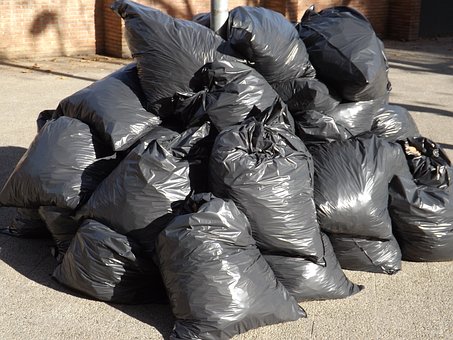Welcome to KDS Environmental
Reliability
100%
Affordability
100%
Professionalism
100%
Reputation
100%
 It is no secret that the amount of home waste produced is increasing every year at a worrying rate, and government are under pressure to broaden existing landfills or build brand-new ones to accommodate the waste that is being produced.
It is no secret that the amount of home waste produced is increasing every year at a worrying rate, and government are under pressure to broaden existing landfills or build brand-new ones to accommodate the waste that is being produced.
What is Hazardous Household Waste?
Household waste is leftover from home products. Hazardous home waste are home products which contain chemicals that have the potential to impact plants, the health of people and animals and are destructive to the environment when handled incorrectly
Improper management of home waste has the potential to be really destructive to the environment, people, and animals. What many of us may not understand is that many of those typical home products contain corrosive, hazardous, or flammable chemicals that can be hazardous to the environment if not dealt with or managed correctly.
Hazardous home waste should not be disposed of in the same way as routine waste. For instance, fuel can be buried in the ground, can impact rivers, and find its way into drinking water. The hydrocarbons in motor oils or pesticides have the potential to bio-accumulate in freshwater fishes and can find its way in the food chain. Burning contaminated materials results in the release of hazardous chemicals and fumes in the air. When released into the environment, these chemicals are dispersed over big locations, therefore impacting the health of persons over a wider area.
Some of these chemicals stay in the systems of plants and animals for a long time and may get in the food chain when the affected plants and animals are consumed.
 Bioaccumulation of hazardous substances in the systems of plants, animals, and people has the potential to impact their reproductive lives, development, hinder the function of various organs such as the liver and kidneys, impact the functioning of the central nervous systems and immune systems of human and animals and some have been listed as known carcinogens.
Bioaccumulation of hazardous substances in the systems of plants, animals, and people has the potential to impact their reproductive lives, development, hinder the function of various organs such as the liver and kidneys, impact the functioning of the central nervous systems and immune systems of human and animals and some have been listed as known carcinogens.
How Can You Tell a Product is Hazardous?
Read the labels of products. In Lackland Heights and other parts of the country, labels are required for all products. These should provide details on the constituents of the products, including signs and words, to suggest the danger to animals, people, and the environment if mishandled.
How To Tell If Products Are Hazardous?
Constantly check out the label of products in your home and make it a practice of checking out the labels of a product before making the decision to purchase them.
What Can You Do to Manage Contaminated Materials?
Purchase Eco-friendly Products – Experts concur that the very best way to manage waste is to not produce it in the first place. You can start by avoiding the purchase of products that contain chemicals that are damaging to people, animals, and the environment. Purchase those products that are eco-friendly or friendly to the environment.
Safe Product Storage – Ensure that hazardous products are stored in a safe place, that their containers are not damaged, do not have any leaks to decrease the risk of polluting water sources, land, people, animals, plants, and the environment. Ensure that corrosive products like acids are saved in different locations from other hazardous products.
Check products regularly to ensure that there are no leaks and damaged covers or bulging sides.
Constantly store products in their initial containers to avoid unintentional use.
Ensure that these products are saved in a place where children and animals have no access to them.
Disposal of Products – Disposal of products should constantly be the last hope. Why? Because there are no safe methods of disposing of contaminated materials. You can avoid the predicament of contaminated materials disposal by either picking eco-friendly products, recycling the product, giving the excess products to friends, neighbors, or family or acquiring smaller sized volumes of the product.
 If, nevertheless, disposal is unavoidable, then you should dispose of the waste in the manner recommended on the label.
If, nevertheless, disposal is unavoidable, then you should dispose of the waste in the manner recommended on the label.
Although there are laws to manage the handling and use of big amounts of contaminated materials, the existence of laws to manage the common small quantities produced at the home is non-existent. For this reason, the duty for the management of contaminated materials falls squarely on the shoulders of the contaminated materials generators.
Protection of the environment can only take place when you play a role in finding innovative ways to re-use, recycle, or decrease waste. This is essential if we are to protect the environment and health of future generations. Remember that Waste Management is Your Business, My Business, Our Business.
if you are in Lackland Heights or Kelland Heights, Lackland Terrace, Lackland City, Westwood Village, Valley Hi, Lackland Air Force Base, Macdona, Withers, Heafer, Leon Valley, call us now!
We are experts in environmental clean-up, and we can help you with eradicating dangerous items in your home. Our number one goal is to ensure that the environment is safe for everyone to live in, and your health is protected. Get in touch with us today and get a free, no-obligation quote.
We are the best eco-friendly company you can trust in Kelland Heights, Lackland Terrace, Lackland City, Westwood Village, Valley Hi, Lackland Air Force Base, Macdona, Withers, Heafer, Leon Valley and Lackland Heights.